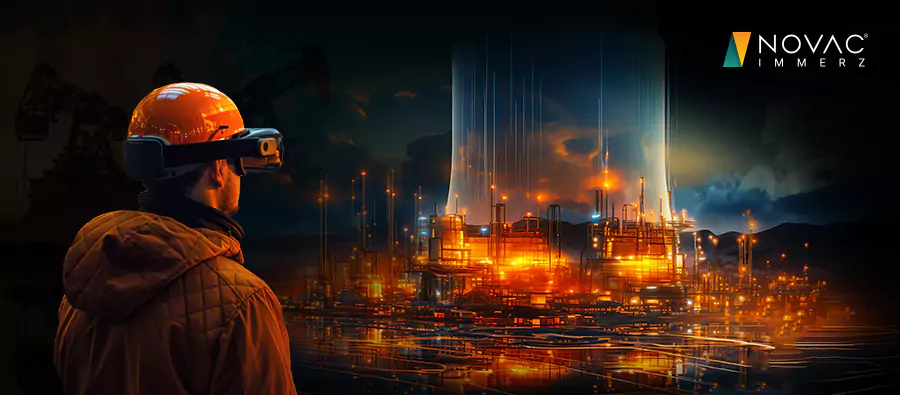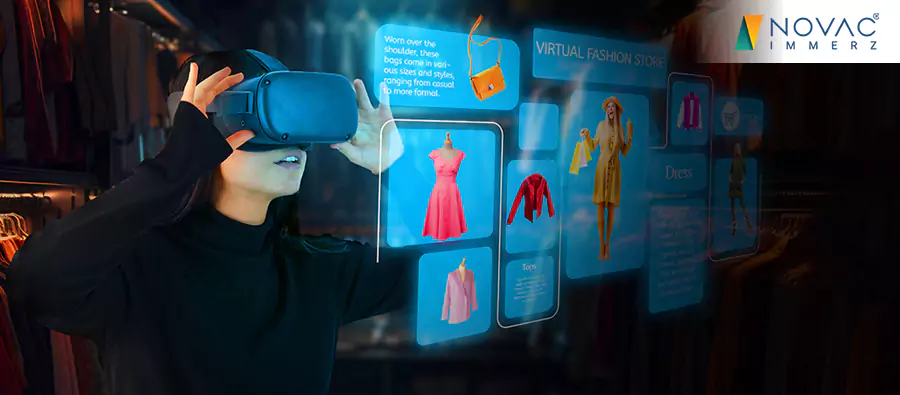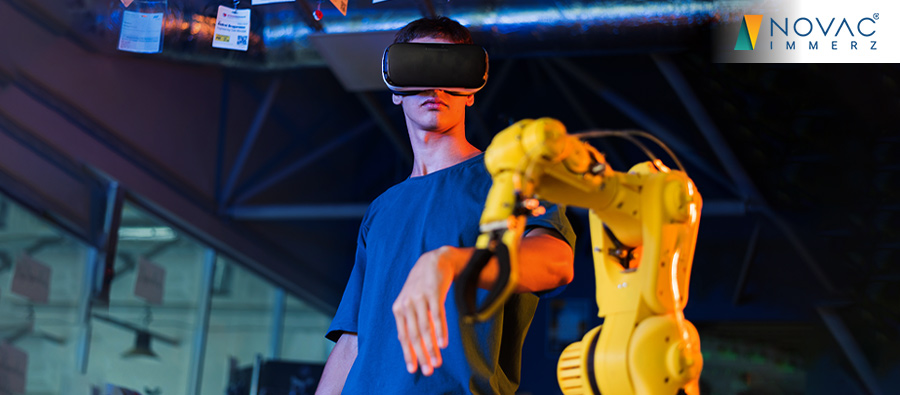Overview
Technological advancements have transformed various industries and healthcare is no
exception. While stakeholders constantly seek to improve the patient experience, immersive
technologies like Augmented Reality and Virtual Reality are gaining momentum. It plays a
significant role in medical treatment, remote surgery, training, diagnostics, and body
mapping. AR VR in Healthcare will enhance the accessibility to services and offer positive
outcomes.
How Are Augmented Reality and Virtual Reality Transforming Healthcare?
Doctors can better understand complex procedures before performing
them on a patient. By capturing images and recreating traumatic conditions, AR
provides intuitive information. Augmented Reality in Healthcare offers advantages
like greater accuracy, real-time virtual collaboration, lower risks, and
visualization of data.
Virtual Reality in Healthcare is used to diagnose diseases and disorders. Thermal imaging
and digital twinning of the patient’s conditions will assist in collecting information. This
immersive technology can identify symptoms without any physical contact between doctors and
patients, ensuring a pain-free experience in invasive procedures.
Right from physical therapy to psychological treatments,Augmented Reality Solutions can offer support to patients
recovering from operation/ surgery. A simulated environment is created for
monitoring hand movements and for observing the activities of differently-abled
people. Doctors can assess if treatment goals are achieved after comprehensive
case-by-case analysis.
Medical students can immerse themselves in various scenarios within
virtual environments, allowing them to refine their skills through repeated practice
of simulations. VR headsets and glasses will offer an immersive experience by
creating a sensation of reality. Medical training can be in the form of exposure to
real medical cases, 3D imaging of organs, and virtual operating rooms.
Doctors can interact with virtual characters through head-mounted
displays. They can respond effectively during stressful situations faced in medical
emergencies. This is one of the biggest benefits of AR VR in Healthcare industry.
Augmented Reality can enhance the quality of remote diagnosis. Doctors can
prepare treatment plans after analyzing superimposed images taken from scans. AR is equipped
with capabilities like object detection and remote assistance. This increases clarity for
healthcare practitioners before they perform complex surgical procedures.
As a reputed Augmented Reality development company, we can develop a virtual
care platform with remote patient monitoring. This leads to better collaboration between
healthcare professionals. They can share images of their cases and get expert consultation
from other professionals via video conferencing. AR-based telemedicine can enable efficient
treatment of persons suffering from chronic illnesses. It can also be utilized for
controlling infectious disease outbreaks.
Doctors can use VR headsets to conduct exercises for patients. They can keep
them involved through remote consultation and in-program instruction. Virtual
Reality can be utilized for treating persons with autism, multiple sclerosis, and attention
deficit disorder (ADD).
Virtual Reality in Healthcare will ensure risk-free rehabilitation by keeping
physical therapy cost-effective. Sessions related to general orthopedics and sports injury
recoveries will help patients develop motor skills and maintain their agility. Therefore,
physical therapy solutions offered by our Virtual Reality development company will speed up
recovery and increase patient engagement since the exercises are tailored as per their
needs.
Paramedics can deliver vital services during medical emergencies. Our experts
will train healthcare professionals in pre-emergency preparedness. Thus, they will be
well-equipped to handle disasters such as fires, floods, and earthquakes.
Typically, our Virtual
Reality Solutions caters to aspects like hazard prevention, safety planning,
training, evacuation, rescue, and restoration of fundamental services. This exposes
healthcare professionals to possible outcomes without dealing with them in reality.
Augmented Reality and Virtual Reality can enhance the health of employees and
ensure a safe workplace. AR provides real-time guidance for workers exposed to hazardous
tasks, while VR immerses them in simulated environments to safely train for hazardous
situations.
Augmented Reality will help in predicting equipment failure. This speeds up
the maintenance of machines and reduces downtime to a significant extent. Our experienced
team will provide guiding tips, videos, and visual references. Subsequently, technicians can
carry out maintenance and repairs in AR glasses. Image processing algorithms will determine
the status of the machine condition (improperly installed, damaged etc).
Augmented Reality can be used to offer simulation-based training during
emergencies. Visual cues and real-time information overlay will help paramedics to improve
their disaster preparedness.
Visual effects will help trainees to handle tough situations arising from
catastrophes. VR can be in 3 different forms, Tactical, Strategic, and Narrative. This
offers benefits like the real-time practice of skills in safe environments, access to common
scenarios, and cost-effective training of individuals and teams. Eventually, first
responders can practice their responses to natural and man-made disasters, evacuate people,
and offer first aid.
Concluding Thoughts
The benefits of AR and VR in healthcare will lead to improved patient outcomes. The future
will depend on factors like timely health intervention by practitioners and the availability
of hardware devices. Ultimately, this will impact the cost of delivering high-quality
healthcare services.
Do you want to revolutionize the healthcare industry by using immersive technologies? Reach out to Novac
Immerz a leading Augmented Reality development company today!

Syed Jowher Zathiq J S

With extensive expertise in immersive technologies, I help businesses leverage tools like
virtual reality (VR) and augmented reality (AR) to meet their strategic goals. My
collaborations with industry leaders such as Daimler and Asianpaints have led to
significant improvements in sales performance, streamlined operational processes, and
the creation of highly engaging customer experiences.
Driven by a passion for innovation, I specialize in using immersive tech to solve complex
business challenges and drive sustainable growth. By staying at the forefront of digital
advancements, I am committed to helping companies navigate and excel in an evolving
digital landscape with state-of-the-art immersive solutions.









